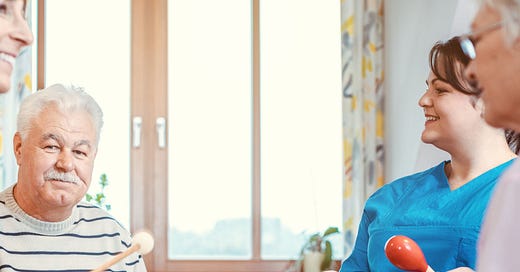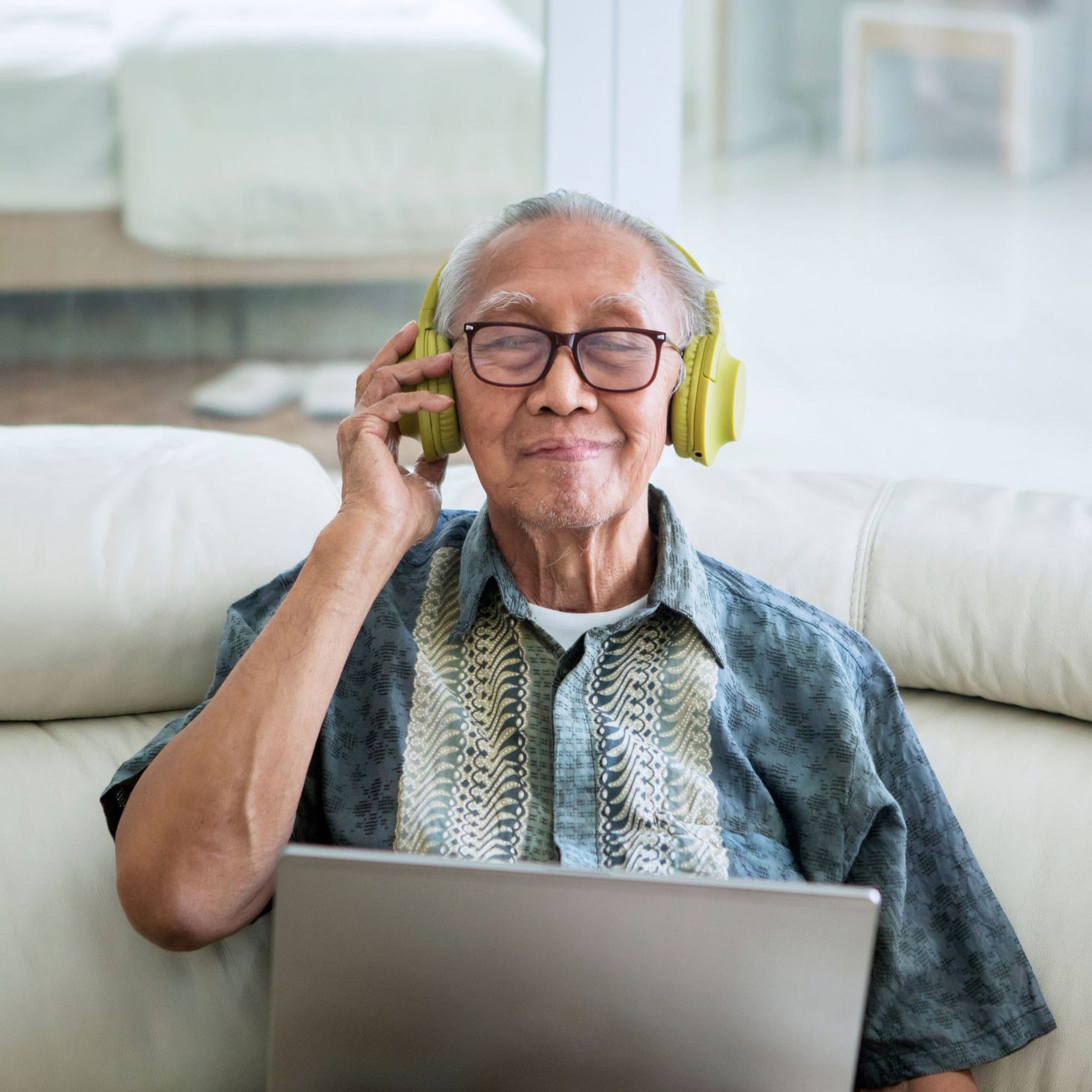How Music Impacts People Living with Alzheimer's or Other Forms of Dementia and their Care Partners
When you walk into Mary Wrablica’s Sanford home, you hear Jimmy Roselli’s voice crooning softly from a small, kitchen-counter speaker. Down the hall, Wrablica’s mother, Rose Marie, sleeps soundly.
On the living room table, a frame drum, shakers, rhythm sticks, a guiro and a tong drum spill from a small cardboard box.
In this household, music is medicine. Song creates comfort during the otherwise challenging moments that inevitably surface when navigating the brain changes associated with dementia.
Wrablica is a former speech therapist and her mother’s sole care provider, and she sees music as an often-overlooked way to communicate.
“A doctor will write a script for depression medicine that costs a thousand dollars without even thinking,” she said. “Music – it just makes people light up. (My mom) never sang when I was young, but now all of a sudden she just sings. That’s how I got interested in the whole music and memory and dementia (topic).”
Wrablica believes the instinct to self-soothe catalyzed her mother’s newfound passion.
“She could sing for hours sometimes,” Wrablica said.
So, when the Alzheimer’s and & Dementia Resource Center’s launched the Music Box Initiative, Wrablica naturally ordered a free kit.
She was delighted when it arrived.
In addition to musical instruments, she received a book that included a personalized playlist, song lyrics, and several engagement activities meant to deepen the music-listening experience.
For example, say you communicated that your loved one enjoyed country music. Your box might prompt you to play John Denver’s “Take Me Home Country Roads,” while you and your loved one gaze at the Shenandoah River photos included in the booklet. You’d then discuss where you feel most “home.”
“Music helps build emotional capital by leveraging the strengths of the person living with dementia, finding commonality and allowing for consistent and valuable interactions,” writes ADRC Music and Program Specialist Ashley Gravatte in the book. “Music is a multi-sensory experience. It has auditory, tactile, and visual aspects. Using music to tap into these senses can help maintain these functions.”
When Rose Marie’s package arrived, she sang every song that was included in her booklet.
“When she got that, she was so happy,” Wrablic said. “It made me feel happy, just to see her enjoying herself.”
And that is the goal.
“I’m really happy to hear that it’s impactful,” said Gravatte, who has received interest from people living across the country.
She plans to expand the program so that she can support assisted living and memory care facilities, too.
“Music is the very first thing we respond to at the beginning of life and one of the last things to leave us at the end of life,” she writes in the booklet. “Everyone has potential for creative expression and connection to music.”
And for Rose Marie and her daughter, that expression creates so much joy.
“Even though she can’t remember what she ate for breakfast, she knows all the lyrics to the songs from her teen years,” Wrablica said.
To participate in the program, simply reach out to Gravatte.





